Category Archives: GoMRI Students
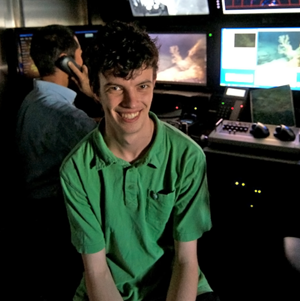
Deep below the surface of the Gulf of Mexico live vast canyons of coral. Recent news reports suggest that the Deepwater Horizon oil spill may have impacted the health of these corals. To find out, Richard Dannenberg is delving into their world, looking at the bacteria that live with the coral for clues about that Read More
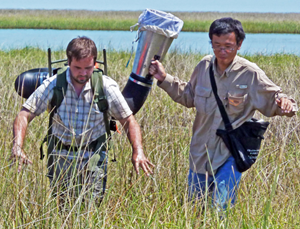
Can watching ants really contribute to understanding an oil spill? Yes, it can! Ants have acted as indicators of environmental change in the past. After oil from the Deepwater Horizon spill entered his research sites, Xuan Chen began uncovering new ways that ants can act as bioindicators of oil’s presence in and impacts on Louisiana Read More
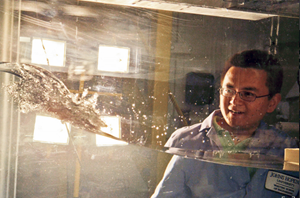
For Cheng Li, the beauty of our oceans is precious. He wants to protect that beauty by improving the tracking of and response to oil spills. Using a customized, self-built wave tank, he investigates the interactions between oil, dispersant, and breaking waves. Data from his wave experiments will contribute to better predictions about where and Read More
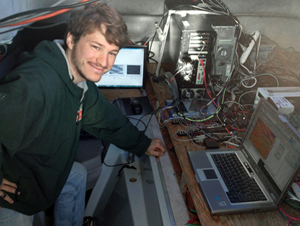
Nathan Laxague studies a small-scale subject matter that has potentially large-scale applications. Capillary waves – or ripples – on the ocean surface can indicate the presence of a film or oil slick on the water’s surface, making them “an important link in the chain of oil spill response.” Nathan is a physics Ph.D. student at Read More
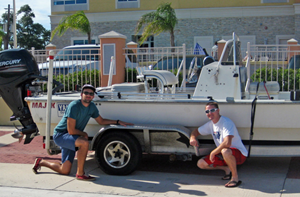
David Christiansen is dedicated to investigating water movement and using those findings to improve local water systems. He got his start monitoring Galveston Bay’s complex flow patterns as a precautionary oil spill measure. Dave’s hard work has taught him innovative problem-solving and has been applied to real-world oil spill response. Dave was an Engineering master’s Read More
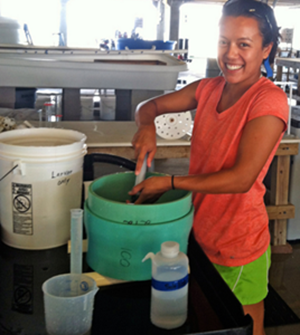
Maria Vozzo’s strong interest in Deepwater Horizon research led her from North Carolina to Louisiana to study the oil’s effects on local oysters. Her work has a wide scope, from the oyster’s environmental conditions to their cellular responses. Maria’s creative adaptation of commercial oyster equipment for her research may also improve them for fisherman’s use. Read More
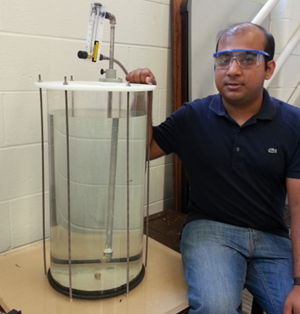
Amitesh Saha is on a mission to find safer alternatives to dispersants currently being used in oil spill cleanup. His research is showing promising results that nanoparticle materials could not only replace dispersants but may also help the marine environment’s response. Amitesh is a Chemical Engineering Ph.D. student at the University of Rhode Island (URI) Read More
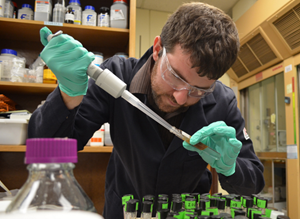
Andrew Worthen’s research is “all about discovering how we can steward the planet more responsibly,” something he gets closer to every day. While Andrew’s initial nanoparticle research focused on creating more efficient and eco-friendly oil extraction methods, he is now applying his findings to oil spill treatment and mitigation. Andrew is a chemical engineering Ph.D. Read More
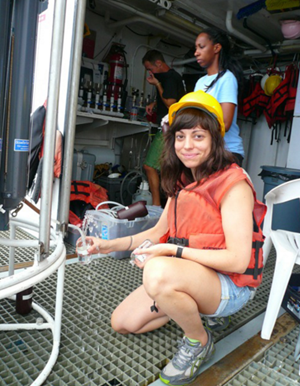
Alexandra Harper, a passionate environmental advocate, is using her oceanography expertise to help “society better balance human need with ecological health.” She is researching the potential relationship between the Deepwater Horizon oil spill and mercury levels in Gulf of Mexico fishes. Because rises in methyl mercury levels in fish increase chances of these toxins making Read More
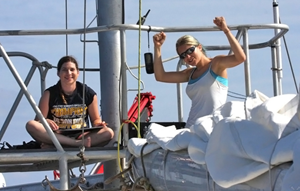
Kait Frasier listens to Gulf marine mammals to estimate how many there are and find out if their numbers are changing after the Deepwater Horizon oil spill. Kait sees dolphins as a good species to study because “everyone can see and understand them, not just scientists.” Kait, a Ph.D. student at the Scripps Institution of Read More
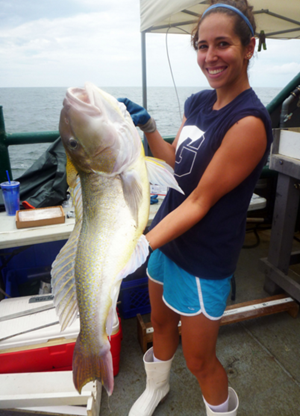
Susan Snyder’s experiences researching fish bile have shown her an overwhelming truth: to solve complex problems, one simply cannot work alone. To understand her findings, Susan has found that working with different scientists such as chemists, geologists and physicists is not only helpful, it is imperative. Susan is a master’s student at the University of Read More
